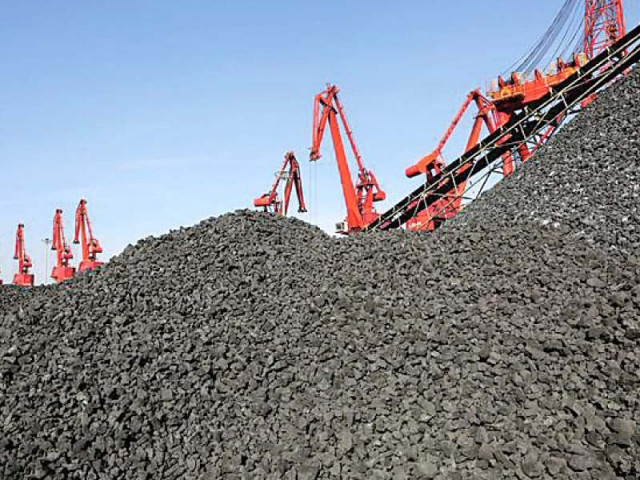Govt considers shift to Thar coal for Chinese power plants to cut costs
Energy ministry committee to prepare technical and financial feasibility studies

The Ministry of Energy has established a four-member committee to explore the feasibility of transitioning Chinese-operated power plants in the country from imported coal to locally sourced coal from the Thar region.
An energy ministry’s notification earlier this week announced the formation of a committee led by the additional secretary of the power division.
The committee’s tasks include preparing technical and financial feasibility studies for converting the power plants to use Thar coal, assessing the logistics for transporting coal from Thar mines to the plant sites, and developing a comprehensive implementation plan if the conversion proves feasible.
Under the China-Pakistan Economic Corridor (CPEC), China has invested over $20 billion in energy projects across Pakistan. Since 2017, three coal-fired power plants, each with a capacity of 1,320 megawatts, have been built—one in Sahiwal, one in Port Qasim, Karachi, and another in Hub, Balochistan.
Currently, these plants operate using imported coal, which incurs an annual cost of over $1.5 billion, as reported by a recent National University of Sciences and Technology study.
Electricity generated from imported coal costs Rs20.02 per kilowatt-hour (kWh), whereas using indigenous coal would reduce this cost to Rs14.19/kWh.
The country’s total electricity generation capacity is approximately 41,268 megawatts, with nearly 47% of its power coming from imported fuels, including Regasified Liquefied Natural Gas (RLNG), coal, and furnace oil.
In February, the energy ministry had outlined plans to significantly increase domestic coal-fired electricity production and avoid new gas-fired plants.
According to Energy Minister Awais Leghari, this transition could potentially save Pakistan over Rs200 billion annually in import costs, reducing electricity prices by up to Rs2.5 per unit.
Energy experts have noted that while converting the plants to use local coal is technically possible, it will require two to three years due to current limitations in coal supply.
Farhan Mahmood, head of research at Sherman Securities, explained that local coal, priced around $50 per ton, is significantly cheaper than imported coal, which costs about $120 per ton. However, the imported coal is of higher quality and efficiency with lower carbon emissions.
Pakistan currently extracts about 7.6 million tons of coal per year from Thar and aims to increase this to 11 million tons within the next three years. Mahmood emphasised the need to enhance mining capacity to meet the demand for power plants and reduce reliance on costly imports.



















COMMENTS
Comments are moderated and generally will be posted if they are on-topic and not abusive.
For more information, please see our Comments FAQ